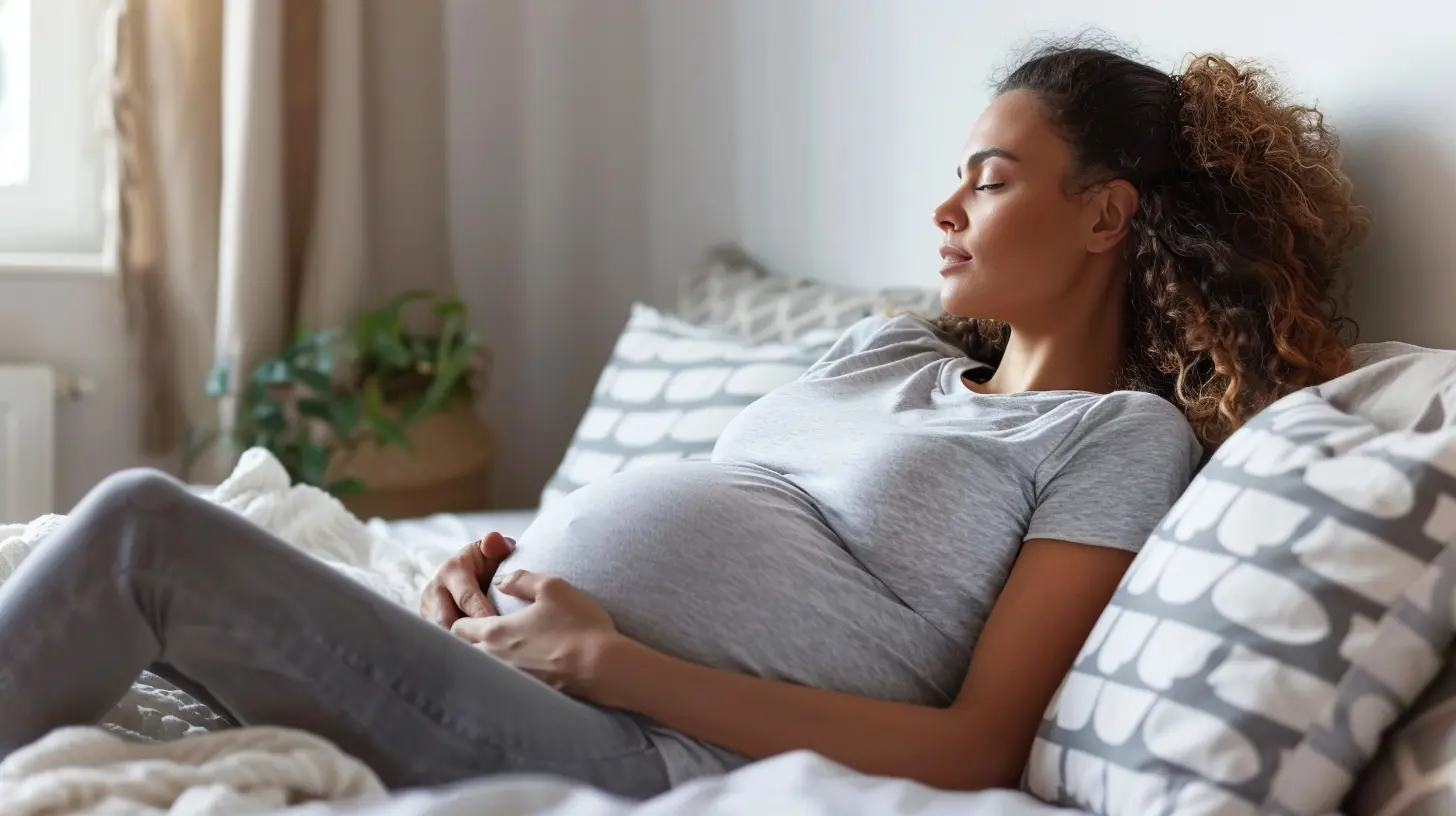Safe Sleep Positions for Every Stage of Your Pregnancy
3 November 2025
Getting a good night's sleep during pregnancy can feel like an impossible mission. Between the frequent bathroom trips, backaches, and ever-growing belly, it's no wonder so many moms-to-be struggle to find a comfortable sleeping position. But did you know that the way you sleep can actually impact your baby's health and your own well-being?
The right sleep position can improve circulation, reduce discomfort, and even lower the risk of complications. So, let’s break it down—trimester by trimester—and find out the safest and most comfortable sleep positions for you and your little one.

Why Sleep Positions Matter During Pregnancy
As your body changes, your usual go-to sleeping position might not be the best option anymore. Sleeping on your back, for example, can put pressure on major blood vessels, reducing blood flow to your baby. And sleeping on your stomach? Well, that won’t be an option for much longer as your belly grows.The right sleep position helps:
- Improve blood circulation
- Reduce back pain and discomfort
- Prevent issues like heartburn and shortness of breath
- Lower the risk of stillbirth and pregnancy complications
Now, let’s dive into the best sleep positions for each stage of pregnancy.

First Trimester: Sleep However You Want (For Now)
Good news! In the first trimester, you can sleep in pretty much any position that feels comfortable. Your belly is still small, and your body hasn’t changed too much yet.However, if you're a back sleeper or stomach sleeper, this is the perfect time to start training yourself to sleep on your side, since that will be the safest option later on.
Best Sleep Positions in the First Trimester
✅ Any position that feels comfortable—side, back, or stomach✅ Start practicing side sleeping to make it a habit for later
What to Avoid
❌ Sleeping in awkward positions that strain your neck or back
Second Trimester: Time to Adjust
By the time you hit the second trimester, your baby bump is more noticeable, and sleeping on your stomach is probably off the table. While sleeping on your back isn’t dangerous yet, it’s better to start transitioning to side sleeping, specifically your left side.Why Left-Side Sleeping is Best
Doctors and sleep experts recommend sleeping on your left side because it improves blood circulation, delivering oxygen and nutrients to your baby more efficiently. It also helps your kidneys eliminate waste, reducing swelling in your legs and feet.Best Sleep Positions in the Second Trimester
✅ Left-side sleeping—best for circulation✅ Right-side sleeping—still safe but not as beneficial as the left side
✅ Use a pregnancy pillow for extra support
What to Avoid
❌ Sleeping on your stomach (if it's uncomfortable)❌ Spending too much time on your back

Third Trimester: Left Side is Your Best Friend
The third trimester is when sleep is hardest to come by. Your belly is large, your baby is moving more, and discomfort is at an all-time high. This is also when sleep position matters the most.Why Back Sleeping is Dangerous in the Third Trimester
Sleeping on your back can put pressure on the inferior vena cava (a major vein that carries blood to your heart), reducing oxygen flow to both you and your baby. Studies have even linked back sleeping in the late stages of pregnancy to an increased risk of stillbirth.Best Sleep Positions in the Third Trimester
✅ Left-side sleeping—the safest position for you and your baby✅ Propping yourself up with pillows—to relieve heartburn
✅ Placing a pillow between your legs—to reduce hip and back pain
What to Avoid
❌ Sleeping on your back for long periods❌ Sleeping on your stomach (basically impossible at this point)
Tips to Make Sleeping Easier During Pregnancy
Even when you find the right sleep position, getting comfortable can still be a challenge. Here are some tips to help you rest better:1. Invest in a Pregnancy Pillow
These U-shaped or C-shaped pillows are lifesavers. They support your belly, back, and legs, making side sleeping way more comfortable.2. Elevate Your Upper Body
If you’re struggling with heartburn or shortness of breath, try propping yourself up slightly with pillows. Sleeping in a slightly inclined position can help ease these symptoms.3. Stay Hydrated (But Time It Right)
Drinking enough water during the day prevents leg cramps at night. However, try to cut back on fluids before bed to reduce those annoying midnight bathroom trips.4. Stretch Before Bed
Gentle stretching can relieve muscle tension and make it easier to fall asleep. Try some prenatal yoga or light leg stretches to prevent cramps.5. Maintain a Consistent Sleep Schedule
Your body loves routine, so try to go to bed and wake up around the same time every day. This helps regulate your sleep cycle, making it easier to fall and stay asleep.6. Ease Anxiety with Relaxation Techniques
If pregnancy worries keep you up at night, try deep breathing exercises, meditation, or listening to calming music. A warm bath or a cup of caffeine-free tea can also do wonders for relaxation.
What If You Accidentally Sleep on Your Back?
Don’t panic! If you wake up and find yourself on your back, just roll to your side. Your body will usually wake you up naturally if something is wrong, like if your oxygen flow is reduced. Using a pillow behind your back can help keep you in a side position throughout the night.The Bottom Line
Finding the right sleep position during pregnancy isn’t just about comfort—it’s about keeping both you and your baby safe. While the first trimester lets you sleep however you want, the second and third trimesters require more mindful positioning. Left-side sleeping is the gold standard, but the key is to listen to your body and make adjustments as needed.With the right support (and maybe a few extra pillows), getting a good night's sleep is totally possible—even with a growing belly! Sweet dreams, mama!
all images in this post were generated using AI tools
Category:
Pregnancy HealthAuthor:

Madeline Howard
Discussion
rate this article
1 comments
Raleigh McSweeney
Embracing safe sleep during pregnancy is vital for both you and your baby! Prioritizing comfort and awareness of your body’s needs can lead to restful nights and brighter days. Here’s to a healthy, peaceful pregnancy journey!
November 7, 2025 at 3:41 AM

Madeline Howard
Thank you for highlighting the importance of safe sleep during pregnancy! Prioritizing comfort and awareness truly makes a difference for both mom and baby. Wishing everyone a healthy journey!


